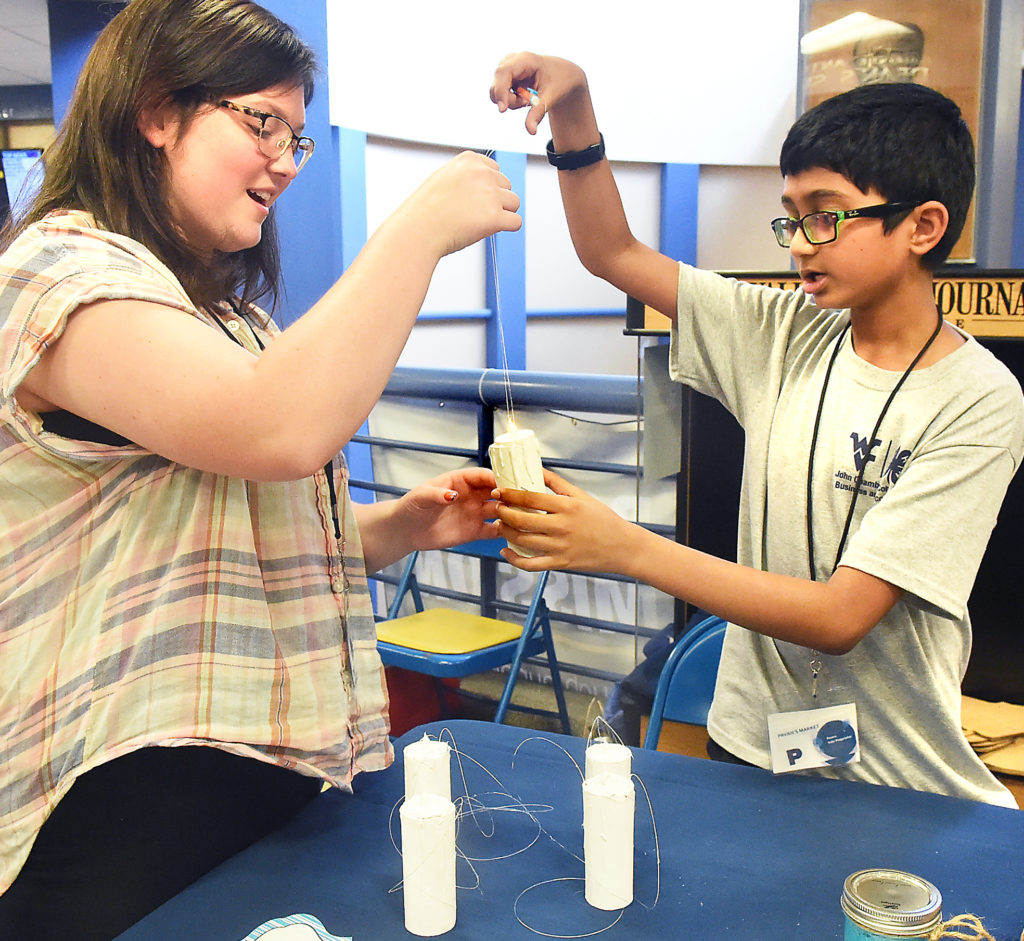The lobby at West Virginia University’s John Chambers College of Business & Economics was converted into a bustling marketplace this past Friday. There was something unique about the sellers at this market: most were under the age of 10.
The retailers may have been young, but they were not simply playing at shop. Kids spent all week making their goods and learning how to sell them, for hard cash, at this year’s 4H Business Camp.
The camp is a collaboration of WVU’s College of Business & Economics and the 4H Extension service.
“They’re working on understanding how you build things and price them and then sell them and create some income for yourself out of it,” said College of Business & Economics Dean Javier Reyes. “It really creates that understanding of the circular flow of the economy. That’s very rewarding to see the kids go through the discovery process.”
In prior years, the program was aimed at high school students and helping them explore careers in business. Now in its third year, the Business Camp shifted focus to elementary school students ages 8, 9 and 10.
“This year we’re doing an entrepreneurial approach using business strategy,” said camp director Suzanne Godsen Kitchen. “These students learned how to start their own business, how to market their business and product, and here we are at market day,” she said.

Students could choose to create a business in one of four industry segments predetermined by the camp’s counselors: health & beauty, home & garden, fun & games or accessories. Products included lip balm, wizard wand pencils, and calm jars.
A calm jar is, “a mix of water, glitter and glue,” as explained by almost-10-year-old Pavan Subramani. “You just shake it up and if you’re mad at someone you can tell them ‘Talk to me when all the glitter has settled down’,” he said. Pavan had already sold out of his calm jars by early afternoon.
“I’m the only one here making flower pots. I knew that nobody else had them, so I knew they would sell,” said camper Lillian Mae Shaffer, showing a business acumen that no class can teach.
9-year-old Ella Harris and her business partner Celia Conrad sold sugar scrubs and Mason jar tissue dispensers under the moniker “Homies Home Décor”. Besides hand-making their products, the young entrepreneurs also learned how to write up a receipt and set their prices.
“We learned how to make the right price and not make it too expensive or not too cheap,” Ella said.
Patrons could take their receipt from a student store and receive a discount from one of the local businesses that had also set up shop at the business school as part of a partnership with the camp. Garcia’s Grill and The Cupcakerie were just two of the many professional outfits lending support to the youthful upstarts.
The program is always looking for more local businesses to partner with and sponsor the campers, as well as financial sponsors that can help expand the camp’s scope next year.




